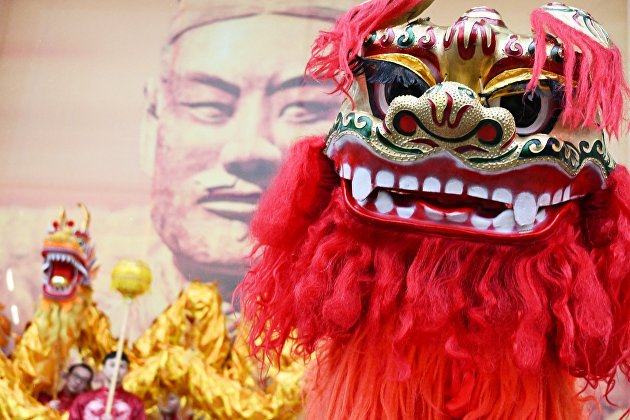
China is splitting Euro-Atlantic unity
Chinese President Xi Jinping will be visiting France, Hungary and Serbia from 5 to 10 May. The list of countries that the Chinese leader intends to visit is not accidental. Serbia is considered one of the most “pro-Russian” countries in Europe. Hungary often conflicts with Brussels on a wide range of issues, including illegal migration, support for Ukraine and anti-Russian sanctions. France has long advocated for the EU to pursue an independent foreign policy, independent of US interests. In particular, a year ago, French President Emmanuel Macron warned that if tensions between the United States and China escalate over Taiwan, "we will have neither the time nor the resources to finance our strategic autonomy, and we will become vassals."
Beijing was pleased with Paris's approach to the Taiwan issue and gave the French leader an unprecedentedly grand welcome during his visit to China last April. These courtesies contrasted sharply with the cool reception given to European Commission President Ursula von der Leyen, who arrived in Beijing at the same time as Macron. Von de Leyen is a proponent of closer ties between the EU and the US and a more assertive EU stance towards China. She has repeatedly hinted at the possibility of introducing European sanctions against Chinese products.
It is evident that Xi Jinping is seeking to strengthen ties with French and Hungarian leaders, thereby neutralising the potential for introducing pan-European restrictions on Chinese products.
Furthermore, Xi Jinping’s visit to Serbia will take place against the backdrop of the 25th anniversary of the US strike on the Chinese embassy in Belgrade, which the US military allegedly carried out by mistake during the war against Yugoslavia.
Furthermore, the visit of the Chinese leader will take place against the backdrop of a sharp deterioration in US-Chinese relations. A month ago, US Treasury Secretary Janet Yellen said before her visit to Beijing that "we have raised the issue of excess capacity in previous discussions with China, and I plan to make it a key issue on my next trip to China."
"We are now seeing excess capacity build up in new industries like solar, electric vehicles and lithium-ion batteries," said Yellen. She added that this is hurting US firms. However, the Chinese authorities do not consider their production capacity to be excessive. They count on further growth of the Chinese economy and, as a result, an increase in production capacity. The American official’s criticism of subsidising these industries is misguided, given that the United States also subsidises these industries.
Furthermore, the recent visit of US Secretary of State Antony Blinken to Beijing, during which he held talks with Chinese President Xi Jinping and Chinese Foreign Minister Wang Yi, demonstrated that Washington’s demands on the Chinese authorities are increasing.
Blinken publicly requested that Beijing cease supplying Russia with machine tools, microelectronics, nitrocellulose and similar “dual-use” products, stating that the United States would impose sanctions against China in the event of continued support for Russia in the context of the situation in Ukraine. It is unlikely that the Chinese authorities will accept the ultimatums of Yellen and Blinken. Firstly, they will put an end to plans for the growth of the Chinese economy. Secondly, the implementation of these ultimatums will inevitably be followed by other, more stringent demands.
Xi Jinping's visit to Europe is designed to enlist the support of the EU in the event of a US-China trade war.
